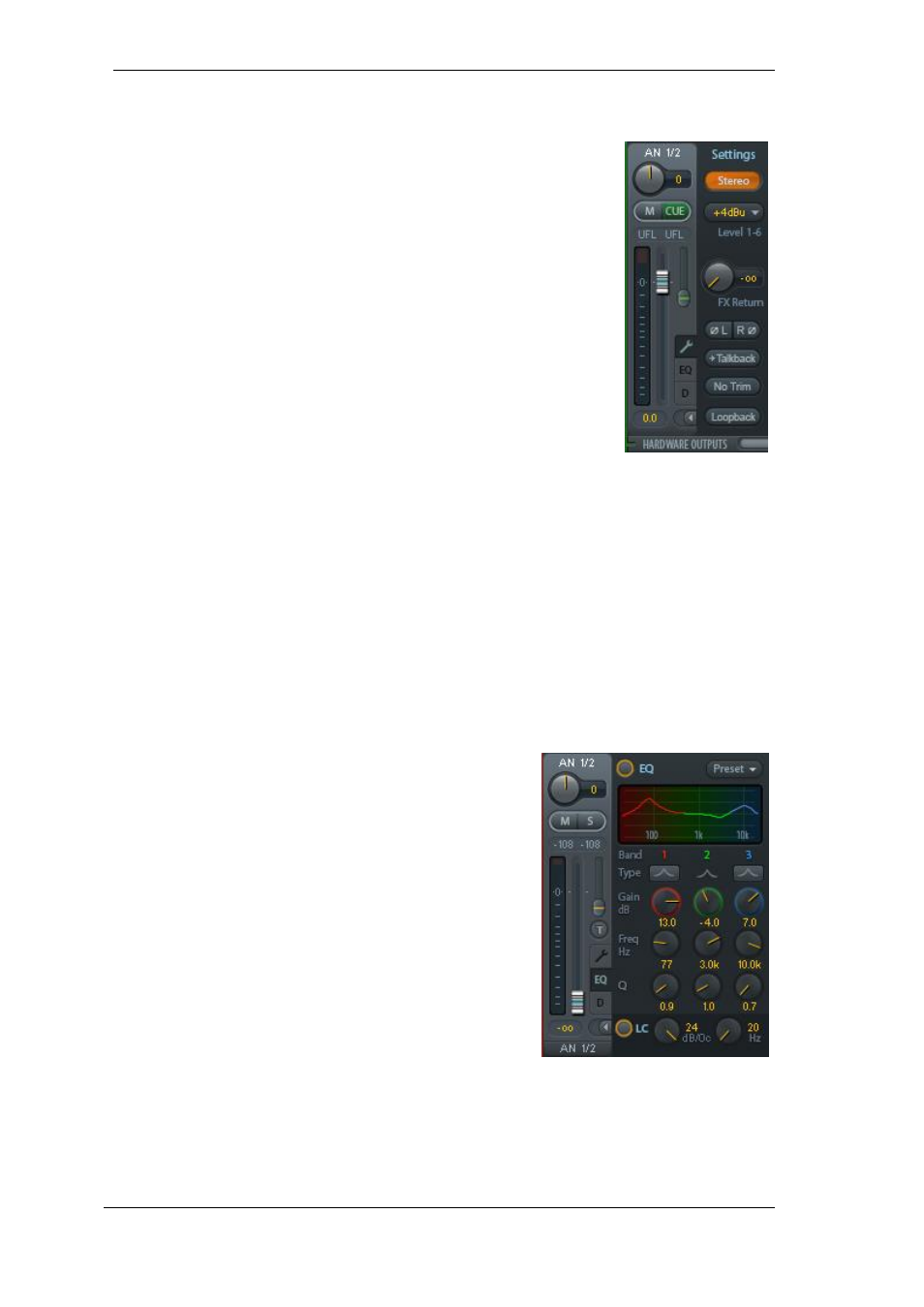RME Fireface UCX II 40-Channel USB-B Audio/MIDI Interface User Manual
Page 60

60
User's Guide Fireface UCX II
© RME
Besides Stereo/Mono, Phase L und Phase R the settings of the Hardware Outputs have further
options:
Level.
Sets the reference levels of the 6 analog Line outputs. The avail-
able settings are +4 dBu, +13 dBu and +19 dBu. The Phones (channels
7-8) have a Low (+4 dBu) and High (+19 dBu) setting to choose from.
FX Return.
The effect signal (Echo and Reverb) is mixed to the respec-
tive hardware output by the duo knob/small fader.
Talkback.
Activates this channel as receiver and output of the Talkback
signal. This way Talkback can be sent to any outputs, not only the
Phones in the Control Room section. Another application could be to
send a certain signal to specific outputs by the push of a button.
No Trim.
Sometimes channels need to have a fixed routing and level,
which should not be changed in any case. An example is the stereo mix-
down for recording of a live show. With
No Trim
active, the routing to this
output channel is excluded from the Trim Gains function, therefore is not
changed unintentionally.
Loopback.
Sends the output data to the driver as record data. The corresponding submix can
be recorded then. This channel’s hardware input sends its data only to TotalMix, no longer to the
recording software.
Another difference to the input and playback channels is the
Cue
button instead of Solo. A click
on Cue sends the respective Hardware Out
put’s audio to the
Main
Out, or any of the Phones
outputs (option
Assign / Cue to
in the Control Room section). With this any hardware output can
be controlled and listened to through the monitoring output very conveniently.
25.3.2 Equalizer
A click on EQ opens the
Equalizer
panel. It is available in all input and output channels, and
affects all routings of the respective channel (pre fader). The panel includes a low cut and a 3-
band parametric equalizer which can be activated separately.
EQ.
Activated by the EQ button.
Type.
Band 1 and 3 can operate in peak (bell) or shelf
(shelving) mode. The middle band is fixed to peak mode.
Band 3 can also operate as
Hi Cut
(low pass filter), especial-
ly useful for LFE and subwoofer purposes.
Gain.
All three bands can change their amplification be-
tween +20 dB to -20 dB.
Freq.
The center frequency of the filters is adjustable be-
tween 20 Hz and 20 kHz. While in peak mode the center
frequency is adjusted, in shelf mode the cut-off point (-3 dB)
will be changed.
Q.
The Quality factor of the filter is adjustable from 0.7
(wide) to 5.0 (narrow).
Lo Cut.
Activated by the button Lo Cut. The slope of the high-pass filter is adjustable between 6,
12, 18 and 24 dB per octave. The cut-off point (-3 dB) is adjustable between 20 Hz and 500 Hz.
